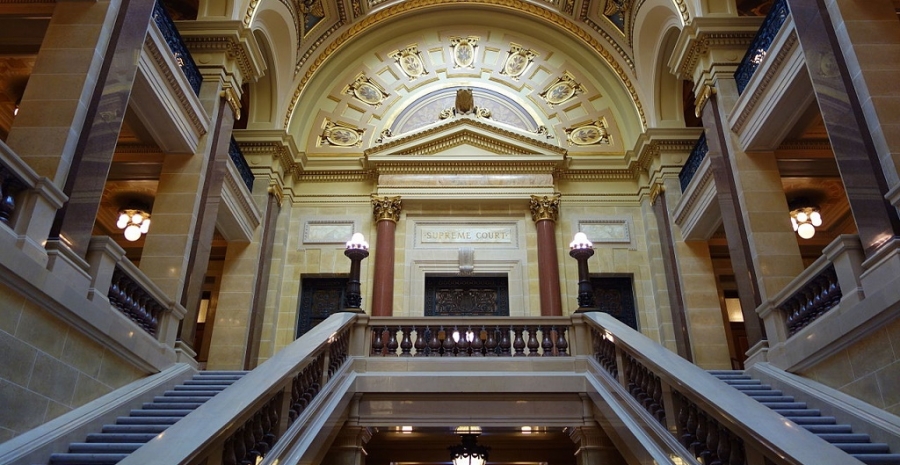Politics
Wisconsin court may not rule on voter purge before November

MADISON, Wis. (AP) — The Wisconsin Supreme Court won’t hear oral arguments in a lawsuit seeking to purge thousands of voters from the rolls until at least September, raising questions about whether the justices will rule before the Nov. 3 presidential election.
The Wisconsin State Journal reports that the justices voted 5-2 on Tuesday to consider the case as part of their regular schedule. That means the earliest that oral arguments could be heard is Sept. 29.
The conservative law firm Wisconsin Institute for Law and Liberty sued last year to force the removal of about 129,000 voters who may have moved. Democrats oppose the effort, saying the state’s voter tracking system isn’t always accurate and that conservatives want to make it more difficult for liberal-leaning voters to cast ballots because they would have to re-register in new districts if they have indeed moved.
Voters can register ahead of the election and at the polls on Election Day in Wisconsin, but they must provide proof of residence, such as a driver’s license, paycheck stub or utility bill.
The case is being closely watched in battleground Wisconsin — a state that President Donald Trump won in 2016 by just 23,000 votes.
An Ozaukee County judge ruled in January that the purge take place immediately but a state appeals court reversed that decision in February. WILL has appealed to the Supreme Court and asked the justices to expedite a ruling. The case is being closely watched in battleground Wisconsin — a state that President Donald Trump won in 2016 by just 23,000 votes.
Conservative-leaning justices hold a 5-2 majority, but that will shrink to 4-3 in August when liberal-leaning Jill Karofsky is sworn in to replace Daniel Kelly.
Rebecca Bradley, another member of the conservative majority, and Kelly were the only two justices who voted against placing the case on the court’s regular schedule.
“Under this court’s typical briefing and oral argument schedule, the people of Wisconsin would most likely not receive a decision in this case until after every single one of Wisconsin’s 2020 elections has come and gone,” Bradley wrote.

